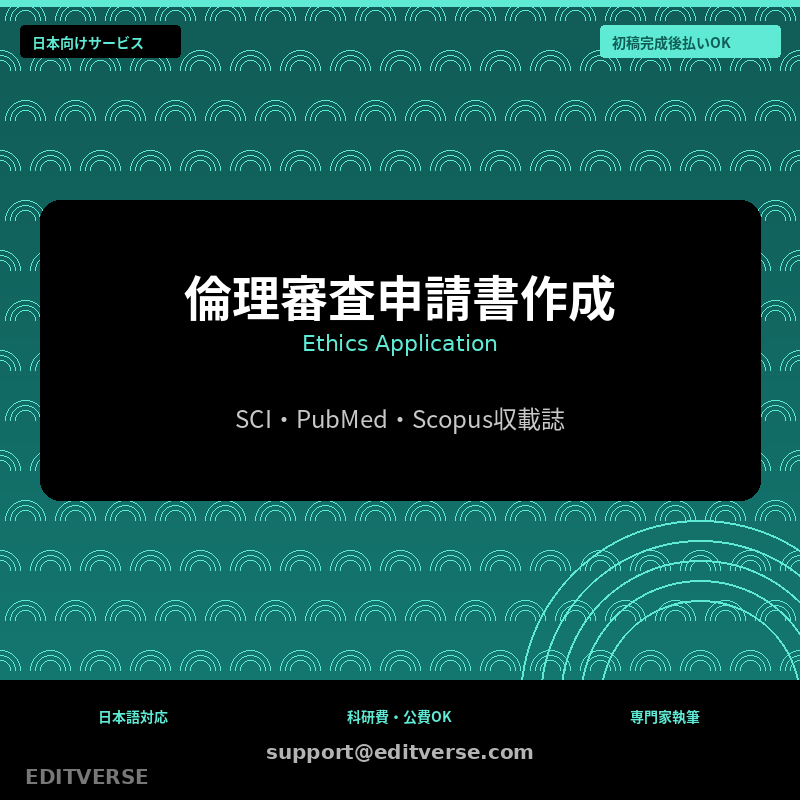Description
倫理審査申請書作成支援 | Ethics Application Support
臨床研究・人を対象とする研究の倫理審査委員会(IRB/倫理委員会)申請書作成を支援するサービス。臨床研究法・倫理指針に準拠した申請書を作成します。
対応する申請 | Application Types
- 特定臨床研究(臨床研究法準拠)
- 人を対象とする生命科学・医学系研究
- 観察研究・介入研究
- 既存試料・情報を用いた研究
- 多施設共同研究
サービス内容 | What’s Included
- 研究計画書(プロトコル)作成支援
- 倫理審査申請書記入
- 説明文書・同意書作成
- 利益相反(COI)申告書作成
- 補償・保険に関する文書
- モニタリング・監査計画
- 申請後の照会対応
準拠する規制・ガイドライン | Regulations
- 臨床研究法
- 人を対象とする生命科学・医学系研究に関する倫理指針
- ICH-GCP(E6(R2))
- ヘルシンキ宣言
納期 | Turnaround
10-14営業日(研究の複雑さにより変動)
AMED・科研費対応 – スムーズな倫理審査承認をサポートします。




